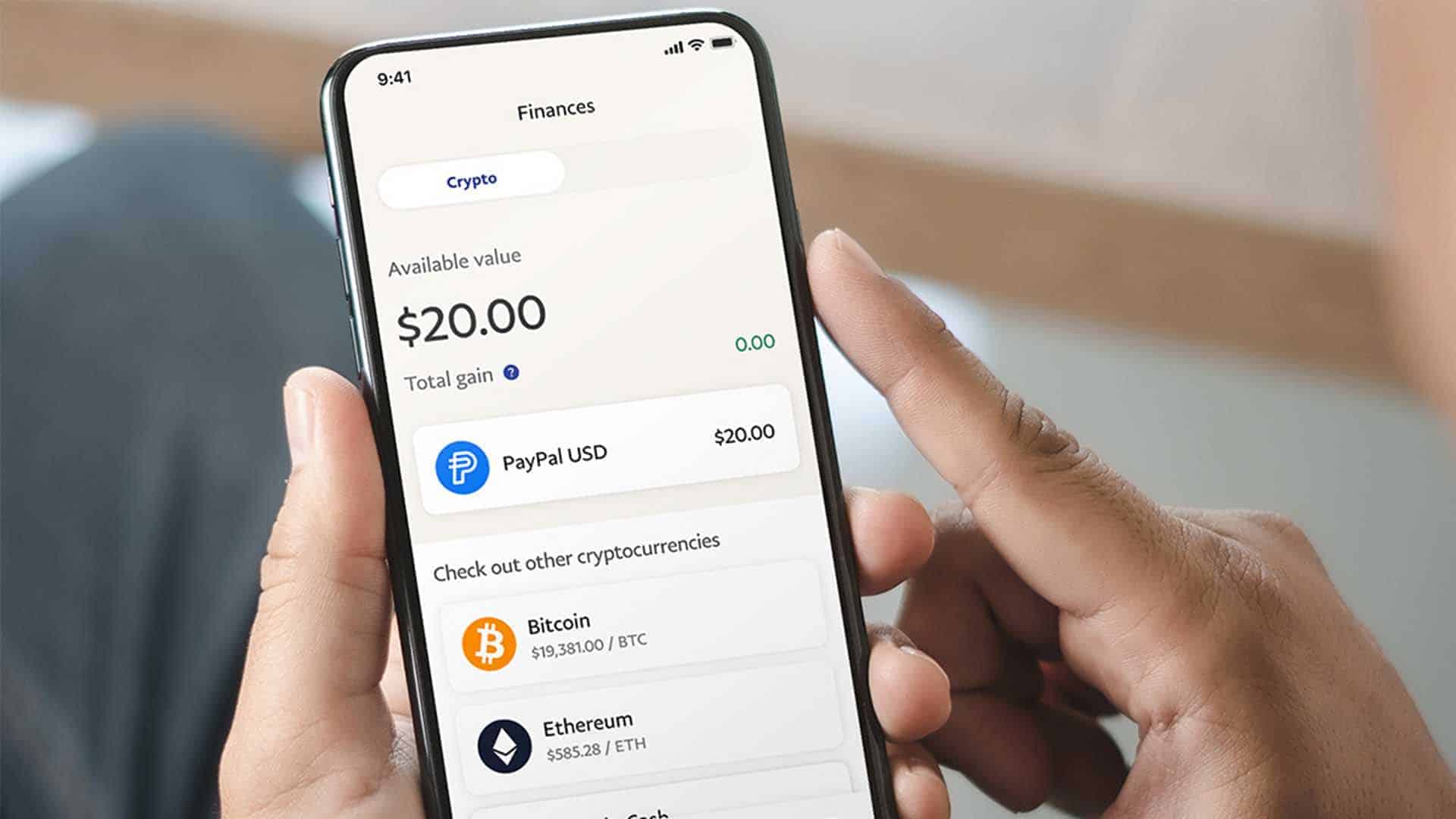Crypto
Don’t like RedotPay? Check these crypto credit card alternatives
This article is your treasure map to five RedotPay alternatives. We’ll break down their features, pros, and cons so you can unlock the ultimate crypto-spending experience.

Just a heads up, if you buy something through our links, we may get a small share of the sale. It’s one of the ways we keep the lights on here. Click here for more.
Crypto cards like RedotPay have made spending digital coins seamlessly a reality by bridging the gap between digital assets and everyday life.
But let’s face it: RedotPay isn’t always a good fit for everyone. High fees or limited global coverage might leave you wanting more.
This article is your treasure map to five RedotPay alternatives. We’ll break down their features, pros, and cons so you can unlock the ultimate crypto-spending experience.
Comparison table for the Best RedotPay Alternatives
Here’s a detailed comparison table for RedotPay alternatives—UPay Card, Trastra, SpectroCoin, Ezzocard, and HODL Card.
| Feature | UPay Card | Trastra | SpectroCoin | Ezzocard | HODL Card |
| Card Issuance Fee | Starts from $10 | €9 | Free | $2.99 to $119.99 | €1 (virtual), €10 (physical) |
| Card Type | Virtual & Physical | Virtual & Physical | Virtual & Physical | Virtual | Virtual & Physical |
| Collateralized Spending | Yes, starting from 1% fee | No | Available at 11.45% fee | No | No |
| KYC Requirement | Yes | Yes | Yes | No | Yes |
| What makes it stand out | Crypto collateralized spending, Visa-backed | Transparent fee structure, Euro IBAN linked | Crypto loans, personal IBAN, Visa-powered | Anonymous card, multiple crypto support | Cashback rewards, staking, Visa-powered |
Top RedotPay Alternatives Reviewed

UPay Card: The Leading Alternative to RedotPay
UPay, a Dubai-based fintech, offers an outstanding alternative to RedotPay with its versatile crypto cards.
If you’re looking for flexibility, these cards come in virtual and physical formats and integrate seamlessly with Apple Pay, Google Pay, WeChat, and PayPal.
UPay’s collateralized spending model lets you hold onto your crypto and benefit from potential market growth while spending fiat.
The collateral rates are as low as 1%. The wallet supports multiple cryptocurrencies, including BTC and ETH, with USDT as the primary collateral asset for UPay cards.
Card limits range from $50,000 for standard tiers to $200,000 for premium options.
As a Visa-backed solution, UPay cards provide access to over 55 million merchants across 168+ countries. Supported fiat currencies include USD, EUR, GBP, AED, HKD, SGD, and CNY, with reasonable foreign exchange fees for other currencies.
Card Issuance: Starts from $10
Annual Fees: Starts from zero
What makes it stand out
- Four Card tiers to choose from
- Quick KYC process
- UPay offers crypto loans
- Transaction fees start from zero
| Pros | Cons |
| Widely accepted worldwide | Limitation to use USDT for collateral |
| Real-time crypto-fiat conversion | FX fees for foreign payments |
| Offers both virtual and physical cards |
Trastra: Your RedotPay Alternative for European Adventures

The Trastra card is a great crypto card option for digital coin users focused on spending in euros.
If you frequently shop or travel within Europe, this Visa-powered card covers all the 30 countries in the European Economic Zone and the UK.
The card integrates seamlessly with Apple Pay and Google Pay for contactless spending.
Trastra card supports BTC, ETH, XRP, LTC, BCH, USDC, and USDT, and is linked to a wallet that allows easy sending and receiving of crypto.
Unlike collateralized options like UPay, Trastra is a prepaid card. To use it, load it with funds, and transactions are directly deducted from your balance.
Daily limits include €300 for ATM withdrawals and €7,000 for online payments, with affordable fees like €1.25 monthly maintenance and €2.25 ATM charges, making it practical for daily use.
Card Issuance: €9
Annual Fees: €24
What makes it stand out
- Tron-based USDT support
- Primary transaction currency is the Euro
- Transparent fee structure
- Euro zone IBAN account linking
| Pros | Cons |
| Multiple crypto support | Charges annual fee |
| Relatively low issuance fee | Limited card options |
| Supports Google Pay and Apple Pay |
SpectroCoin Card: The User-Friendly Crypto Card

The SpectroCoin prepaid card, powered by VISA, is a dynamic crypto debit card offered by SpectroCoin Bitcoin Exchange.
Available in both virtual and physical formats, it supports EUR and USD for spending while accommodating over 30 cryptocurrencies, including BTC, ETH, USDT, and DASH.
Both virtual and physical cards require KYC verification for activation, which entails providing a government-issued ID and a utility bill.
Fund your card via crypto or a European IBAN and use it at over 40 million VISA-supported merchants. Balances are displayed in fiat currency, even though your wallet holds crypto.
The SpectroCoin cards feature a €2,500 daily ATM withdrawal limit and a maximum load limit of €25,000. ATM balance inquiry fees begin at €0.50, and you can collateralize your crypto balance for an 11.45% annual interest rate.
Card Issuance Fee: Zero
Annual Fees: Free
What makes it stand out
- Option for virtual and physical card
- Offers crypto loans
- Option for personal IBAN
| Pros | Cons |
| Zero card issuance fees | Steep crypto collateral rate |
| Widely acceptable | |
| Reasonable spend limits |
Ezzocard: The Fully Anonymous Crypto Card

Ezzocard provides fully anonymous prepaid crypto cards for secure transactions. Registration requires no personal details—just a random name and address.
These cards are primarily virtual, with no ATM withdrawals, and can be funded using cryptocurrencies like BTC, ETH, DOGE, LTC, USDT, TRX, and SOL.
There are six prepaid card options, each with varying limits. The higher the limit, the more it costs, with the premium card offering a top balance of $1,000.
While no KYC is needed, remember that Ezzocard doesn’t support 3D-secure payments or recurring subscriptions like Netflix. But don’t worry—the site has a helpful guide on where you can use the cards!
Issuance Fee: Starts from $2.99 to $119.99
Annual Fees: Zero
What makes it stand out
- 100% anonymous crypto card
- Non-reusable once balance
- Instant card delivery via email
- Multiple crypto support
| Pros | Cons |
| No KYC verification crypto cards | Cards hold low maximum limits |
| Low minimum balance | Not supported by many merchants |
| No monthly fees |
HODL Card: Earn Rewards as You Spend

The HODL Card is ideal for those looking to earn cashback rewards while spending their digital coins.
By staking the minimum amount for any of our card tiers, you can enjoy cashback of up to 8% and discounts on fees of up to 80%.
This card is issued by the Fideum mobile application, developed by UAB Hodl Services, a company registered in Lithuania.
The HODL Card is available in both virtual and physical forms as a prepaid card, with strict KYC (Know Your Customer) policies in place.
With the HODL Card, you can spend cryptocurrency like fiat currency in over 200 countries at more than 40 million merchants that accept Visa.
It supports multiple currencies and accepts over 20 digital coins, including ADA, BTC, BNB, NEAR, and SOL. However, it processes transactions exclusively in Euros.
Issuance Fee: 10 EUR for the physical card and 1 EUR setup fee for the virtual card
Annual Fees: 60 EURO
What makes it stand out
- Great cashback reward up to 8%
- Option for physical or virtual card
- Offers staking opportunities
| Pros | Cons |
| Multicurrency crypto card | High foreign exchange fees |
| Apply Pay compatible | Relatively high fees |
| Attractive reward program |
What to Consider When Choosing a Crypto Card
When choosing a crypto card, evaluating several factors is essential to ensure it aligns with your needs and preferences. Here are the key factors to keep in mind:
- Supported Cryptocurrencies: Ensure the card supports the cryptocurrencies you hold or plan to use. Some cards support a wide range, while others may be limited to popular coins like Bitcoin or Ethereum.
- Fees and Costs: Look at transaction fees, ATM withdrawal fees, and annual fees. A good card should offer competitive rates, with transparent cost structures.
- Ease of Use: Choose a card that provides an easy-to-use app or platform for managing your account. User-friendly interfaces and features like instant card freezes or spending tracking are essential.
- Security Features: Ensure the card has strong security measures, such as two-factor authentication (2FA), fraud protection, and robust encryption.
- Accepted Locations: Check the card’s acceptance depending on your goals. Some cards are Visa or Mastercard-branded, meaning they can be used at millions of locations worldwide, while others may have more limited use.
- Card Type (Physical vs. Virtual): Determine whether you need a physical card for in-person purchases or if a virtual card for online payments suffices. Some services offer both options.
Crypto Card Risks You Should Know:
Like any financial service, crypto cards carry certain risks. From fluctuating crypto values to changing regulations, it’s crucial to understand the risks involved.
Here’s a breakdown of what to know before choosing a crypto card.
- Market Volatility: Cryptocurrencies are highly volatile, which can significantly affect the value of your holdings. If your card automatically converts crypto to fiat for transactions, sudden price drops could lead to unexpected losses.
- Security Risks: Crypto cards can be targets for hacking, phishing, or fraud. Weak security measures, like insufficient encryption or lack of two-factor authentication (2FA), can put your assets at risk.
- Regulatory Uncertainty: Crypto regulations vary widely across jurisdictions and can change unexpectedly. Regulatory crackdowns or bans in your region may disrupt your ability to use the card.
- Conversion Delays and Slippage: Some ecards convert crypto to fiat at the time of purchase. Delays in this process or slippage during volatile periods can lead to unfavorable exchange rates.
- Platform-Specific Risks: Issues like poor customer support, system downtime, or hidden terms in the issuer’s policies can create operational risks and inconvenience.
Closing Remarks
Crypto cards simplify spending digital assets by making them as versatile as fiat money. While RedotPay excels in certain areas, no single solution fits all.
The options discussed above provide diverse features to suit a range of users, from newcomers to seasoned traders.
Before choosing, identify your top priorities—transaction limits, supported currencies, or reward systems. With thoughtful consideration, you’ll find the perfect card to streamline your crypto payments and enhance your financial flexibility.
What are your thoughts on the best crypto card for your needs? We’d love to hear your experiences and preferences. Whether you’re a seasoned crypto enthusiast or just starting to explore digital payments, share your insights! Drop a comment below.
































